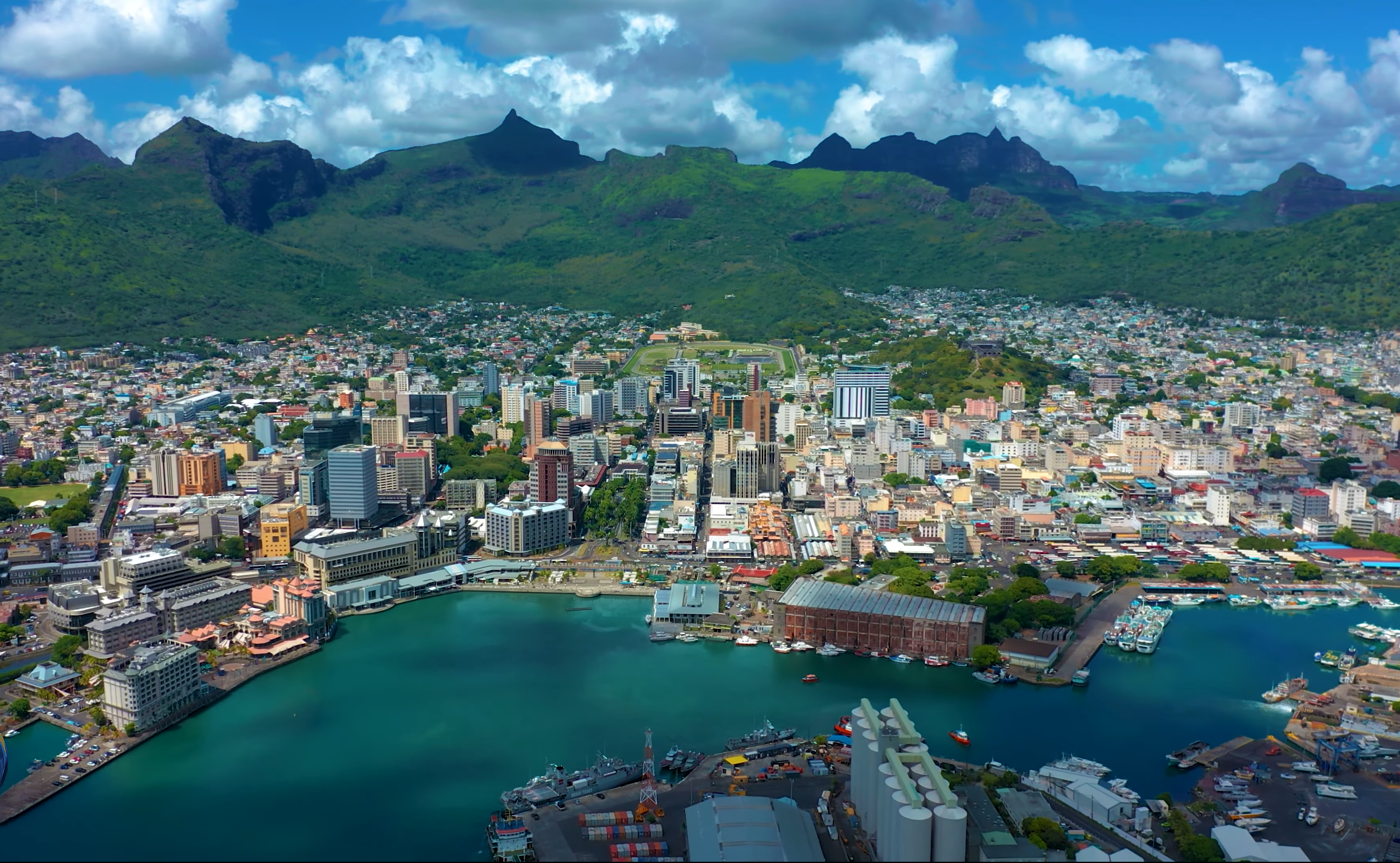Beginners’ Guide to Mauritius Entry Requirements and Customs

Port Louis | Capital City
Mauritius Entry Requirements Guide: To enter Mauritius, most nationalities do not require a visa. However, visitors must possess a passport with a minimum of 6 months’ validity and at least two blank pages. Additionally, children must have their passports complete with a photo.
Passport Validity & Visa Requirements
- Key Points:
- Most nationalities do not require a visa for short stays (up to 60 days).
- Your passport must be valid for the entire duration of your visit and have at least one (preferably two) blank page.
- Always carry proof of onward or return travel.
Quick Tip: Double-check your passport’s expiration date and blank pages well before your trip to avoid last-minute issues.
- Additional Info:
For extended stays (work, study, or business), ensure you adhere to the Mauritian government’s additional requirements, including booking confirmations for your initial accommodation.
Digital Travel Form
- Steps to Follow:
- Complete the Mauritius All-in-One travel form online before departure.
- Print the form with the QR code.
- Present the printed form upon arrival at the airport.
Pro Tip: Complete your digital form ahead of time to skip the hassle at the airport and streamline your entry process.
- Reminder:
If not pre-completed, you’ll need to fill out an immigration disembarkation card at the airport.
Health & Vaccine Requirements
- Vaccine Guidelines:
Refer to trusted resources like Travel HealthPro’s Mauritius guide for specific vaccine recommendations. - Health Screening:
Travelers from malaria-prevalent countries may be required to give a blood sample. Expect possible follow-up checks during your stay.
Health Reminder: Stay updated on health advisories before you travel. A quick check with your doctor can save you a lot of trouble abroad.
Customs Requirements
- What You Need to Know:
- Declare all prohibited or taxed items on arrival.
- Forbidden items include weapons, drugs, pornography, cigarette papers, fruits, vegetables, meat, and plants.
- Allowed items include:
- Tobacco: 200 cigarettes, 50 cigars, or 250g of tobacco
- Alcohol: 1 litre of liquor and 2 litres of wine or beer
- Perfume: 25 ml
Customs Caution: When in doubt, declare. It’s better to ask the official than risk fines or delays.
Safety and Security in Mauritius
- Crime & Protection:
- Non-violent crimes like petty theft and burglary are common, particularly in tourist hotspots (e.g., Port Louis, Grand Baie, Flic en Flac).
- Be extra cautious with personal belongings and avoid risky areas at night.
Stay Safe: Always store your passport and valuables in a secure hotel safe. Trust your instincts when navigating unfamiliar areas.
- Reporting Issues:
If you encounter a problem, contact the Mauritius tourist police immediately by dialling 999.
Laws and Cultural Differences
- Personal Identification:
Always carry your passport or a valid driving license. - Cigarette Papers:
Possession or importation is illegal. - Drug-Related Offences:
Penalties are severe, including prolonged detention without bail.
Legal Reminder: When traveling, pack your own items and avoid carrying items on behalf of others to stay clear of legal troubles.
- Police Investigations:
If you’re under investigation, understand that you might be charged and barred from leaving the country until the matter is resolved.
Driving in Mauritius
- Important Driving Rules:
- Traffic drives on the left.
- Your country’s license is valid for the first 4 weeks; an International Driving Permit is required afterwards.
- Observe speed limits: 40 km/h (urban), 80 km/h (main roads), 110 km/h (motorway).
Driver’s Tip: Always carry your driving license, and take extra caution on busy roads where pedestrian crossings might not be respected.
- Road Conditions:
Roads may be challenging with heavy traffic and occasional accidents. Pedestrians and cyclists share many roads, so extra vigilance is needed.
Sea Travel & Extreme Weather
- Sea Travel:
Be aware of piracy risks in the Gulf of Aden and parts of the Indian Ocean. Modern counter-piracy measures help, but caution is still advised. - Weather Alerts:
- Tropical Cyclones: Occur from November to May. Always follow local advisories.
- Landslides: Some regions are prone to heavy rains—stay updated with local warning systems.
Weather Alert: Monitor local forecasts and heed advisories. In a cyclone, it’s critical to follow government instructions to ensure your safety.
In terms of extreme weather and natural disasters, it’s crucial to know how to prepare and respond to such events.
Tropical cyclones are a seasonal occurrence in Mauritius, typically from November to May. In the event of a cyclone, it is important to heed the guidance provided by the Mauritian government information service. The Mauritius Meteorological Services offers a structured system of phased warnings for such situations. Cyclones can lead to significant property damage. During these events, exiting one’s accommodation is prohibited, and car insurance policies may be rendered void.
Regarding landslides
Certain regions are more susceptible, particularly during cyclones and heavy rainfall. The Mauritius Meteorological Services issues a five-stage landslide warning system, and local authorities may conduct evacuations if areas are deemed at risk.
Useful Links to Mauritius
Month-by-Month Guide to Mauritius: Climate and Events
Climate:
- Temperature: Averages around 27-28°C (81-82°F).
- Rainfall: Approximately 235mm.
- Note: Hot and humid with frequent rainfall; part of the cyclone season.
Events & Festivals:
- New Year’s Celebrations: Firecrackers, music, and beach parties.
- Chinese Spring Festival: Celebrated with Lion Dances and family feasts.
Climate:
- Temperature: 27-28°C (81-82°F).
- Rainfall: High, approximately 242mm.
- Note: Cyclone season; travel is not advisable.
Events & Festivals:
- Holi Festival: The Festival of Colours, celebrated with vibrant powders and water.
Climate:
- Temperature: Averages around 27°C (81°F).
- Rainfall: Decreasing but still significant, approximately 191mm.
- Note: End of the hot and wet season.
Events & Festivals:
- Maha Shivaratri: Hindu pilgrimage to Grand Bassin.
Climate:
- Temperature: Around 26°C (79°F).
- Rainfall: Further decrease, approximately 171mm.
Events & Festivals:
- Eid al-Fitr: Celebrated by the Muslim community, marking the end of Ramadan.
Climate:
- Temperature: Averages 24°C (75°F).
- Rainfall: Relatively low, approximately 97mm.
Events & Festivals:
- China Town Food and Cultural Festival: Featuring food stalls and performances.
Climate:
- Temperature: Around 22°C (72°F).
- Rainfall: Low, approximately 83mm.
Events & Festivals:
- Tropicadingue: A fun obstacle race event.
Climate:
- Temperature: Averages 21°C (70°F); coolest month.
- Rainfall: Minimal, approximately 83mm.
Events & Festivals:
- Kite Surfing Festival: Best conditions for kitesurfing.
Climate:
- Temperature: Around 22°C (72°F).
- Rainfall: Low, approximately 76mm.
Events & Festivals:
- Ganesh Chaturthi: Hindu festival with processions and prayers.
Climate:
- Temperature: Around 23°C (73°F).
- Rainfall: Slight increase, approximately 54mm.
Events & Festivals:
- Father Laval Day: Pilgrimage to Blessed Jacques Désiré Laval’s shrine.
Climate:
- Temperature: Averages 24°C (75°F).
- Rainfall: Moderate, approximately 50mm.
Events & Festivals:
- Diwali: Hindu Festival of Lights, symbolizing the victory of light over darkness.
Climate:
- Temperature: Around 26°C (79°F).
- Rainfall: Increasing, approximately 66mm.
Events & Festivals:
- Ghoon Festival: Islamic festival with processions and prayers.
Climate:
- Temperature: Averages 27°C (81°F).
- Rainfall: High, approximately 162mm.
Events & Festivals:
- Christmas: Celebrated island-wide with feasts and festive decorations.
Mauritius Climate Guide
| Destination | Jan | Feb | Mar | Apr | May | Jun | Jul | Aug | Sep | Oct | Nov | Dec |
|---|---|---|---|---|---|---|---|---|---|---|---|---|
| Grand Baie | ☀️ ☁️ 29°C 235mm |
☀️ ☁️ 29°C 242mm |
☀️ ☁️ 29°C 191mm |
☀️ ☁️ 28°C 171mm |
☀️ ☁️ 27°C 97mm |
☀️ ☁️ 26°C 83mm |
☀️ ☁️ 25°C 83mm |
☀️ ☁️ 25°C 76mm |
☀️ ☁️ 26°C 54mm |
☀️ ☁️ 27°C 50mm |
☀️ ☁️ 28°C 66mm |
☀️ ☁️ 29°C 162mm |
| Chamarel Mountains | ☀️ ☁️ 27°C 272mm |
☀️ ☁️ 27°C 282mm |
☀️ ☁️ 27°C 229mm |
☀️ ☁️ 26°C 200mm |
☀️ ☁️ 25°C 121mm |
☀️ ☁️ 23°C 95mm |
☀️ ☁️ 22°C 95mm |
☀️ ☁️ 22°C 90mm |
☀️ ☁️ 23°C 75mm |
☀️ ☁️ 24°C 65mm |
☀️ ☁️ 26°C 90mm |
☀️ ☁️ 27°C 190mm |
| Port Louis | ☀️ ☁️ 29°C 225mm |
☀️ ☁️ 29°C 230mm |
☀️ ☁️ 29°C 180mm |
☀️ ☁️ 28°C 160mm |
☀️ ☁️ 26°C 90mm |
☀️ ☁️ 25°C 75mm |
☀️ ☁️ 24°C 75mm |
☀️ ☁️ 24°C 70mm |
☀️ ☁️ 25°C 50mm |
☀️ ☁️ 26°C 45mm |
☀️ ☁️ 28°C 60mm |
☀️ ☁️ 29°C 150mm |
| Bel Ombre | ☀️ ☁️ 28°C 252mm |
☀️ ☁️ 28°C 260mm |
☀️ ☁️ 28°C 200mm |
☀️ ☁️ 27°C 130mm |
☀️ ☁️ 26°C 110mm |
☀️ ☁️ 24°C 90mm |
☀️ ☁️ 23°C 90mm |
☀️ ☁️ 23°C 85mm |
☀️ ☁️ 24°C 60mm |
☀️ ☁️ 25°C 55mm |
☀️ ☁️ 27°C 75mm |
☀️ ☁️ 28°C 170mm |
| Flic en Flac | ☀️ ☁️ 29°C 230mm |
☀️ ☁️ 29°C 235mm |
☀️ ☁️ 29°C 210mm |
☀️ ☁️ 28°C 180mm |
☀️ ☁️ 27°C 100mm |
☀️ ☁️ 26°C 85mm |
☀️ ☁️ 25°C 80mm |
☀️ ☁️ 25°C 78mm |
☀️ ☁️ 26°C 55mm |
☀️ ☁️ 27°C 48mm |
☀️ ☁️ 28°C 70mm |
☀️ ☁️ 29°C 155mm |
| Mahebourg | ☀️ ☁️ 28°C 240mm |
☀️ ☁️ 28°C 245mm |
☀️ ☁️ 28°C 220mm |
☀️ ☁️ 27°C 200mm |
☀️ ☁️ 26°C 105mm |
☀️ ☁️ 25°C 80mm |
☀️ ☁️ 24°C 75mm |
☀️ ☁️ 24°C 75mm |
☀️ ☁️ 25°C 60mm |
☀️ ☁️ 26°C 55mm |
☀️ ☁️ 27°C 65mm |
☀️ ☁️ 28°C 140mm |
| Curepipe | ☀️ ☁️ 26°C 210mm |
☀️ ☁️ 26°C 215mm |
☀️ ☁️ 26°C 200mm |
☀️ ☁️ 25°C 190mm |
☀️ ☁️ 24°C 100mm |
☀️ ☁️ 23°C 75mm |
☀️ ☁️ 22°C 70mm |
☀️ ☁️ 22°C 70mm |
☀️ ☁️ 23°C 55mm |
☀️ ☁️ 24°C 50mm |
☀️ ☁️ 25°C 65mm |
☀️ ☁️ 26°C 135mm |
| Quatre Bornes | ☀️ ☁️ 27°C 220mm |
☀️ ☁️ 27°C 225mm |
☀️ ☁️ 27°C 210mm |
☀️ ☁️ 26°C 195mm |
☀️ ☁️ 25°C 105mm |
☀️ ☁️ 24°C 80mm |
☀️ ☁️ 23°C 75mm |
☀️ ☁️ 23°C 75mm |
☀️ ☁️ 24°C 60mm |
☀️ ☁️ 25°C 55mm |
☀️ ☁️ 26°C 70mm |
☀️ ☁️ 27°C 140mm |
| Tamarin | ☀️ ☁️ 28°C 225mm |
☀️ ☁️ 28°C 230mm |
☀️ ☁️ 28°C 215mm |
☀️ ☁️ 27°C 190mm |
☀️ ☁️ 26°C 110mm |
☀️ ☁️ 25°C 85mm |
☀️ ☁️ 24°C 80mm |
☀️ ☁️ 24°C 80mm |
☀️ ☁️ 25°C 65mm |
☀️ ☁️ 26°C 60mm |
☀️ ☁️ 27°C 75mm |
☀️ ☁️ 28°C 145mm |

